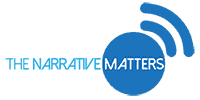
Articulated Insight – “News, Race and Culture in the Information Age”

The death of public figure Charlie Kirk has sparked a contentious and complex national conversation. Beyond the initial event, a secondary controversy has emerged, centered on individuals who have lost their jobs or faced professional sanctions over comments made on social media. This trend has ignited a fierce debate, raising critical questions about the boundaries of online expression, the reach of employer policies, and the very nature of free speech in the modern workplace.
Across the country, reports have surfaced of employees from various sectors—including healthcare, education, and public service—being terminated or suspended. The reason? Public posts that were deemed inappropriate, callous, or celebratory regarding Kirk’s death. These actions have not occurred in a vacuum. They are often the result of online campaigns that identify individuals and report their comments to their employers, creating immense public pressure for companies to act.
Free Speech or Professional Consequence?
This situation immediately brings up the concept of free speech. Many who are critical of the firings argue that they represent a form of censorship and an attack on an individual’s right to express their personal views, however unpopular. It’s a common misunderstanding, however, that the First Amendment provides blanket protection for all speech in all contexts.
In the United States, the First Amendment primarily restricts the government from punishing speech. It does not generally apply to private employers. Most private-sector employees are hired “at-will,” meaning they can be terminated for nearly any reason, as long as it isn’t illegal discrimination based on protected classes like race, religion, or gender. Expressing a controversial opinion online is typically not a protected activity. For companies, the calculation is often one of public relations and brand protection. When an employee’s online behavior is seen as reflecting poorly on the organization, leadership may decide the association is too damaging to maintain.
The Blurring Lines Between Personal and Professional
The core of the issue lies in the collapsing wall between our personal lives and our professional identities. Social media has made it easy for anyone to connect a person’s name to their place of employment. A comment made on a personal account can quickly become a problem for an employer, especially if it goes viral.
This new reality has significant implications for workplace policies. Companies are increasingly finding themselves in the position of policing off-duty conduct that they believe harms their reputation or creates a hostile work environment. The firings related to the Kirk comments show that many organizations are drawing a hard line. They are signaling that association with their brand comes with an expectation of a certain level of public decorum, even on personal platforms.
Broader Implications for Online Expression
This trend is about more than just one public figure. It highlights a growing digital reality where online expression carries tangible, real-world consequences. The ease with which online mobs can target individuals and pressure their employers has created a chilling effect. People may become more hesitant to share their opinions on sensitive topics for fear of professional reprisal.
This raises an important question for society: What is the right balance? On one hand, there is a clear need for accountability. Speech that is hateful or incites violence has no place in civil discourse. On the other hand, a culture where any controversial statement can lead to unemployment risks stifling open debate and creating an environment of fear.
Ultimately, the firings surrounding the comments on Charlie Kirk’s death serve as a stark reminder of the evolving landscape of speech and accountability. It forces us to confront difficult questions about the responsibility of employers, the rights of employees, and the powerful role social media now plays in shaping both our public and professional lives. As we navigate this digital world, the line between a personal opinion and a professional liability is becoming finer and more consequential than ever before.
#FreeSpeech #WorkplaceEthics #SocialMediaDebate
